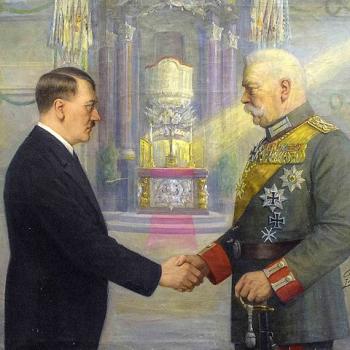Lectionary Reflections for Sunday, February 5, 2012
Epiphany 5 Isaiah 40:21-31
We Christians have just concluded our yearly celebration of the birth of Jesus and, as always, have used the opening verses of Isaiah 40 to inaugurate the feast. "Comfort, comfort, my people," cries the unnamed prophet of the exile to a people lost and hopeless, announcing to them that the horrors of their deportation and the rigors of their ghetto existence in Babylon are about to end, because "the glory of YHWH" is about to be revealed. And for Christians that glory has come uniquely in the person of the babe of Bethlehem.
We have for so long heard and sung these magnificent words that we have been generally unaware of the surging theological cauldron from which they emerged. Indeed, in exile nearly all of the beliefs of traditional Israelite religion were in the most serious contention. After all, those exiles had lost land, temple, king, and priesthood, the four facets of their history in Israel that had assured them, they thought, of the perpetual presence of YHWH. Now, they were not so sure. It seems clear that these verses from the latter section of Is 40 were this prophet's powerful claims concerning the ongoing presence of that God.
But with whom was he arguing? Just who was it calling the tradition to task? I would say that it was represented primarily by the author of the book of Job, and Isaiah's own words make that plain. Let us see how he unfolds his argument.
He first says in vs 21 that Israel in exile is evidencing a kind of theological amnesia. "Have you not known? Have you not heard? Has it not been told you from the very beginning? Have you not understood from the foundations of the earth?" In other words "Everyone who has even half a brain, who has listened with even one ear, knows beyond a doubt the truth I am about to reiterate!" Listen up, he says! Listen to the powerful and unchanging truth of YHWH!
"The one who sits above the earth's oval, its inhabitants like grasshoppers, who stretches out the skies like a curtain, who spreads them like a tent to live in, who brings princes to nothing, who makes the earth's rulers empty" (Is 40:22). Any who dare to claim that YHWH has been rendered powerless by the Israelite defeat at the hands of the Babylonians have fallen into theological error; in YHWH's eyes all rulers are "nothing" and "empty" and all people when compared to YHWH are merely the foulest of insects. YHWH is creator of all the skies and all the earth. No one can doubt YHWH's majesty!
How can you imagine that Babylon has in fact won, says the prophet? "Scarcely are they (the rulers) planted, scarcely seeded, scarcely has their stem taken root, when YHWH blows on them until they wither, and the storm wind carries them off like stubble" (Is 40: 24). In the sight of YHWH the so-called rulers of earth are little more than failed harvests, dry plants, blown away by the breath of God's storm.
Isaiah's first argument is more a simple claim than an argument. YHWH is still God in the same ways that YHWH has always been God; the Babylonian defeat has precisely nothing to do with the matter. YHWH is still creator, still all-powerful ruler, still judge of any who would claim rule. Nations rise and fall, and Babylon's turn will come. Only YHWH remains the same forever.
Argument 2 appears next in the form of the argument from design. The very existence and order of the universe, observable by anyone who can see, announces the creative presence of YHWH. There is no other creator to be seen! "To whom will you compare me? Who is my equal, says the Holy One? Lift up your eyes and look: who created these? It is the one who brings out their phalanxes and counts them, calling all by name. Because YHWH is great in strength, massive in power, not a single one is missing" (Is 40:25-26). "The skies are writing the glory of YHWH," declares Ps 19, and Isaiah agrees. The vast array of the stars is a living witness to the creative power and care of YHWH.
All this is well and good and very familiar to any Israelite. However, from the edge of the prophet's rapt audience comes a persistent voice; Isaiah quotes this voice for us. "Why do you say, Jacob, and speak, Israel: 'My way is hidden from YHWH and my justice is passed over by my God'" (Is 40:27)? This is without doubt the voice of Job. Isaiah has here neatly summarized Job's angry cries for justice and his persistent demand to be heard in the divine courtroom. Job's expectations concerning the justice of God have been dashed; his life-long faithfulness has been rewarded not by a grateful God but by a heavenly monster who apparently cares nothing about him and demonstrates callous indifference to the cries of God's people (see especially the astonishing Job 9:22-24).
And Isaiah's response to this discordant cry? More of the same! "Have you not known? Have you not heard? YHWH is a God forever, creator of the ends of the earth! He does not faint or grow weary; his insight is unsearchable. He gives power to the faint and strengthens the powerless." The answer to Job's cry from Isaiah is, in effect, "Don't ask questions; just trust in the power of YHWH." In Is 45, he will warn quite directly that no human has any right to ask any questions of God (see 45: 9-13). Shut up and trust, shouts the prophet!





